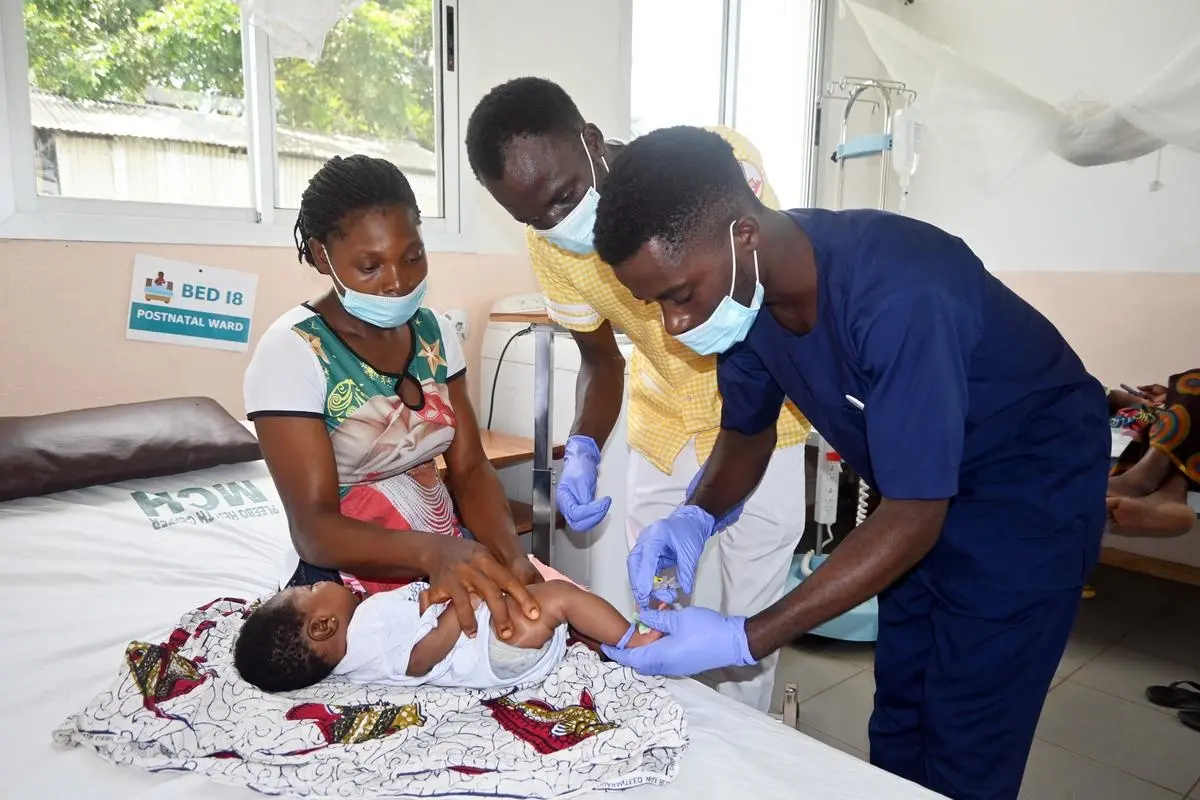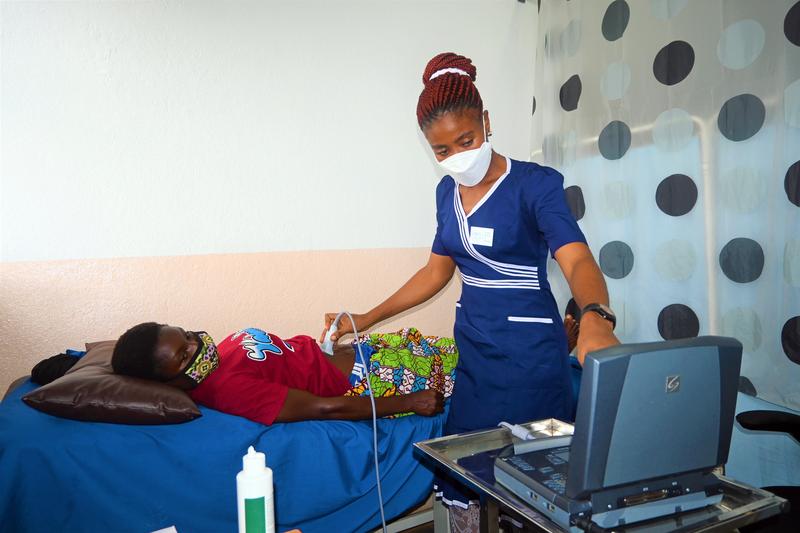PIH Fellowship Welcomes Third Cohort of Nurses From Seven Countries

Ten nurse leaders accepted to yearlong leadership program
Posted on May 9, 2022

Gladys Mtalimanja Banda was familiar with health care long before she became a nurse midwife. She had malaria as a child and the hospital quickly became her second home. Among her frequent visits, one trip in particular stands out.
As a nurse cared for her, Banda looked over and noticed a baby having a seizure. The baby’s mother was in tears. Banda’s nurse noticed and rushed over to help. After a quick injection, the convulsions immediately stopped.
“After I saw the baby was back to a normal state, I felt so happy and I said when I grow up, I also want to be a nurse,” says Banda.
For the past 14 years Banda has worked as a nurse-midwife in Malawi. She is currently a nursing officer at Partners In Health (PIH)-supported Neno District Hospital and recently earned another title: fellow in PIH’s Global Nurse Executive Fellowship (GNEF).
Unlike Banda, Charles Jarsor didn’t have a positive first impression of nursing. Before entering the profession, he witnessed nurses speaking aggressively to their patients. While it discouraged him, it sparked action. Jarsor went on to study nursing to evoke change in the system. Now, as a fellow in this year’s cohort, he hopes to continue to improve his communication skills through GNEF.
“I applied to GNEF to positively contribute to the health care delivery system of [Liberia] and the world at large by leading my people positively and influencing the lives of people around me,” says Jarsor, who is director of nursing services at PIH-supported J.J. Dossen Hospital in Maryland County, Liberia.
Jarsor and Banda are among ten nurse leaders, from seven countries, in the third cohort of the yearlong program. GNEF launched in 2017 to help global nurse leaders succeed in executive positions. Many times those who are placed in such roles lack the support and resources needed to be successful.
All fellows complete a yearlong executive style curriculum, which includes mentorship, coaching, and professional development opportunities. The curriculum involves three, weeklong intensive bootcamps. Each session kicks off a key area of focus: self, others, and systems. In the leading self-phase, participants learn skills to lead with purpose and increase self-awareness. In the leading others phase, fellows hone their communication skills, and learn to leverage diversity and difference. In the final phase, centered around leading systems, nurses explore systems thinking and ways to make innovative improvements. Additionally, each fellow works on an individual capstone project which they present at the end of the program. Previous projects have ranged from professional development programs for nurses to cervical cancer screening improvement programs.

It’s an intense but rewarding year of growth and development for all involved–from fellows to faculty.
“I am constantly impressed by the fellows’ willingness to push themselves outside their comfort zones and stand up as patient-care experts and leaders in places where the profession isn’t always highly-regarded. They’re trailblazers,” says Kyra Sarazen, PIH’s nursing program associate, who supports GNEF activities and fellows.
Since GNEF’s inception, 13 clinicians have graduated from the program and gone on to various leadership roles, including Viola Karanja, deputy executive director of PIH Liberia and Angeline Charles, PIH’s clinical systems and education specialist. Alumni have also been published in academic journals, carried out quality improvement projects, and received international acknowledgment. Ten more fellows will now follow in their lead: Gladys Mtalimanja Banda (Malawi), Daniela Puma Abarca (Peru), Mary Lesesa Toti (Lesotho), Evaline Wangui Ngige (Sierra Leone), Ruth Férinah Butair (Haiti), Claudinette Favard (Haiti), Charles Jarsor (Liberia), David Tuyisenge (Rwanda), Lemekeza Namwali (Malawi), and Billy Mawindo (Sierra Leone).
In the future, GNEF plans to roll out a curriculum in Spanish. It’s currently only available in English.
Originally published on pih.org



